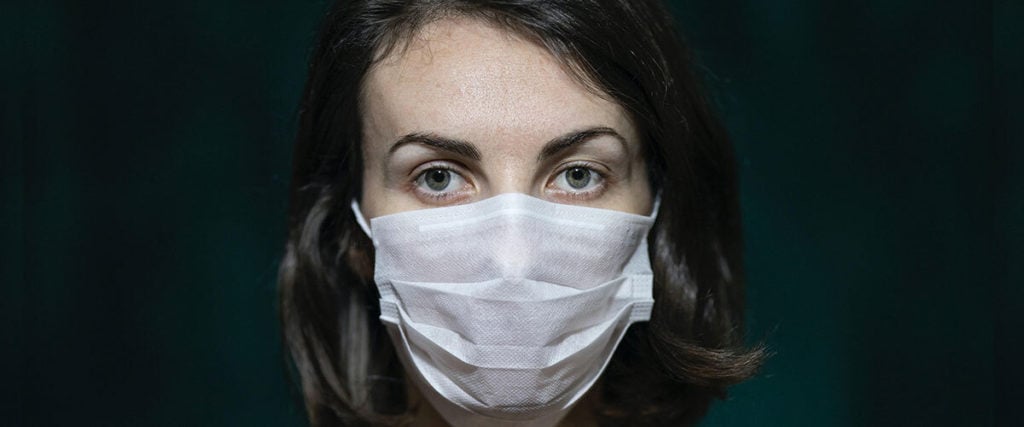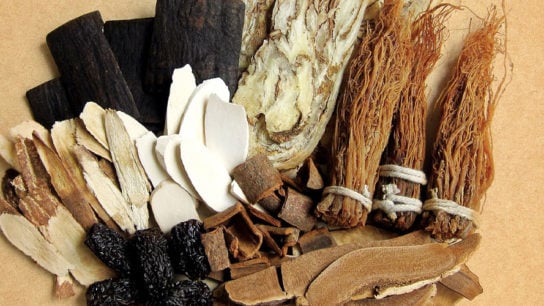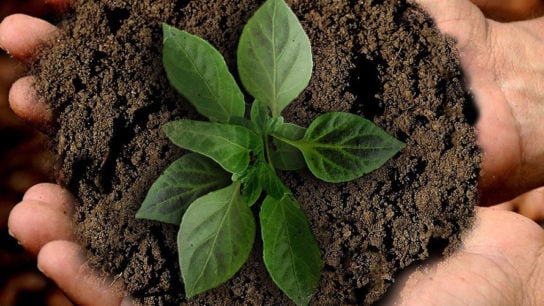Melbourne-based charity Medical Pantry is diverting unused medical supplies from the landfill to communities in need in an effort to ‘green’ up the healthcare sector.
Unknown to many, healthcare is the second largest contributor to landfill after the food industry, generating over four billion tonnes of waste annually. In Australia, hospitals and pharmaceuticals account for more than 7% of the national carbon footprint, much of which comes from the burial or incineration of sterile, single-use medical supplies. Stepping up to the plate is Melbourne-based charity Medical Pantry, whose mission is to reduce hospital waste by rescuing high-quality, unused medical supplies from Australian hospitals and delivering them to underserved communities, both locally and internationally. Barely 10 months old, Medical Pantry has already seen it all. They were there for the Australian bushfires, for the measles outbreak in Samoa and the Pacific Islands, and most recently, for the coronavirus pandemic. Here, founder CEO and practising anaesthetist of seven years, Dr Martin Nguyen, weighs in on what makes healthcare so unsustainable, and the impact of COVID-19 on hospitals.
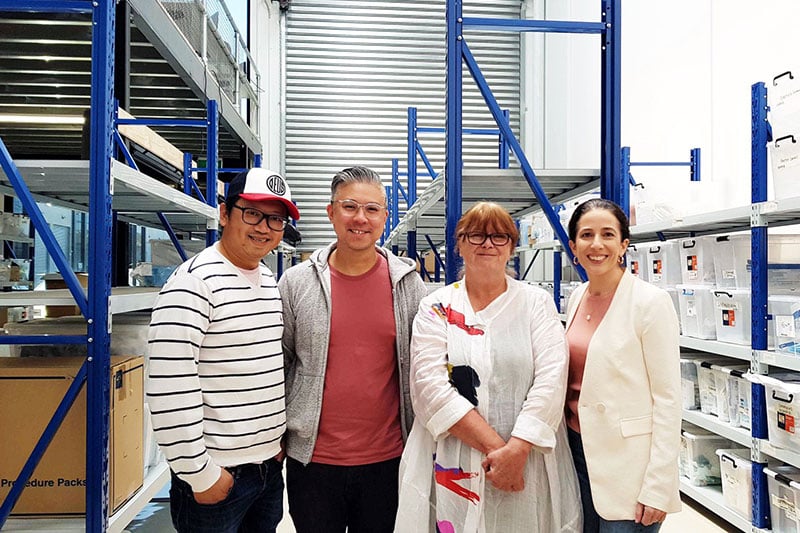
Pictured left to right: John Huynh (Volunteer MP)), Martin Nguyen (CEO MP), Diane Taylor (Project Manager Katalyst Foundation), Lisa Egan (Head of Legal, Katalyst Foundation)
How did Medical Pantry first begin?
The Medical Pantry journey began when I was in my second year of anaesthetic training where I worked with and was inspired by Professor Forbes McGain. We conducted a research project to identify the amount of waste produced from operating theatres and was shocked by our findings. In just seven days at one single hospital, operating theatres produced 1265 kilograms of waste in total (enough to fill two rooms), 23% of which could be recycled without compromising infection control. Some of these items were unused medical consumables. At the same time, I’d also been working for a charity called the Australian Vietnamese Health & Welfare Association – an organisation close to my heart as I would travel with my parents and wife every year to Vietnam to assist with cataract and dental surgery for people in rural areas. Many of these communities were in need of the very medical supplies we were throwing away, so there was a real disconnect. Initially, I tried collecting discarded supplies from hospitals in Melbourne and shipping them to various communities through the Melbourne University Health Initiative. But while the communities were always grateful, the items I donated did not always match the supplies needed for the particular surgeries performed in the area, which often meant that they were thrown out.
Over time, I began to notice that there was a supply side and a demand side, and so this startup mentality of a two-sided market – Medical Pantry – started to form. With technology, we can now match demand to supply. Our generous volunteers catalogue and upload every item donated from hospitals by origin, batch number, and whether it’s expired, been opened or used. This allows overseas communities to pick and choose exactly what they need. Medical Pantry partners with other charities like the Katalyst Foundation, for example, to act as a conduit between their individual communities and hospitals. By working with them, we’re able to synergistically leverage their logistics, connections and insights in culture and heritage.
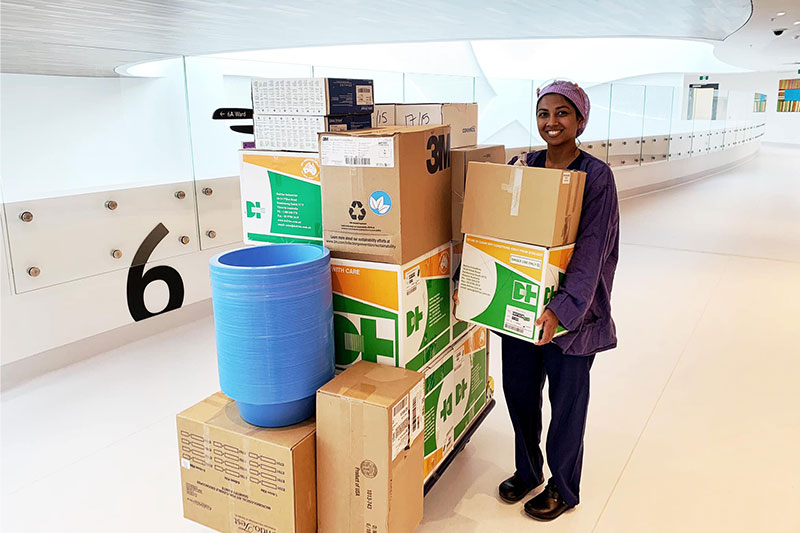
In what ways is health care unsustainable right now, and why?
At the moment, there are no clear metrics on the amount of healthcare waste generated globally. However, the most alarming statistic I’ve seen is that healthcare centres are the second largest contributor to landfills in the US. One of the main drivers behind this is single-use products made mostly of plastic. Once anything touches or is used on a patient, we throw it away because we can’t guarantee sterility in between patients. There’s a potential risk of human error or mechanical error when sterilising equipment for multiple use. As a result, regulators like the TGA (Therapeutic Goods Administration), FDA (Food and Drug Administration), and CE (Conformité Européene) have stated that every product must have an expiry date.
How has COVID-19 made this waste problem worse?
It’s just ramped everything up. We have reverted to single-use products because of the risk of transmission, and we’re seeing that beyond healthcare too. For instance, you may have noticed that coffee shops don’t allow customers to bring reusable mugs anymore. The impact for Medical Pantry has been that we’ve stopped operations as a downstream effect. We set the bar really high so we cannot send supplies that might introduce COVID-19 to relatively isolated places like Vanuatu or Fiji because they do not have the infrastructure to deal with the virus. Instead, we have focused our energy on being part of the fight against COVID19, and have started a campaign to protect healthcare workers by producing and donating hand sanitizer, aerosol hoods, and personal protective equipment (PPE).
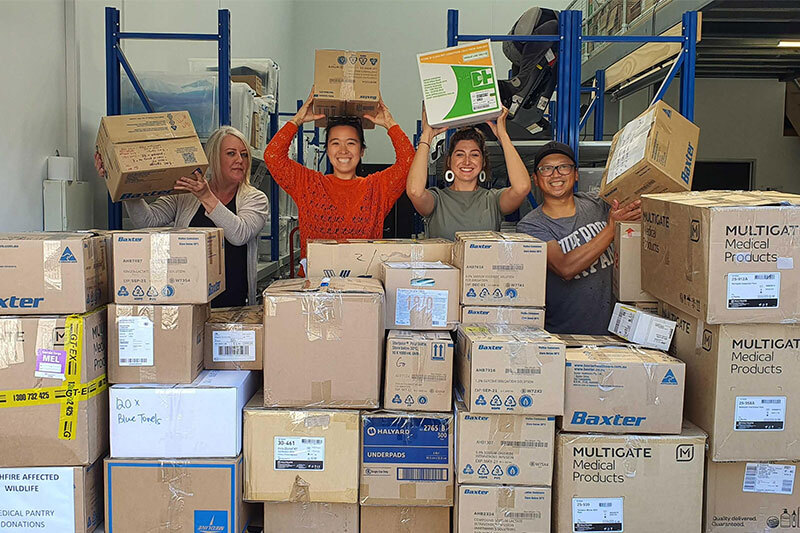
Do you see any opportunities or long-term changes arising in health care as a result of COVID-19?
With most institutions, there’s a tendency to do things the way we’ve always done them, even if it’s really inefficient. Healthcare is no exception. In fact, we’re probably the ‘laggard’ in that we are the slowest to change. A good thing to come out of COVID-19 is that it’s totally disrupted the way we work. There’s been a massive adoption of technology where we’re using Zoom meetings and Slack for communication. We’ve talked about replacing email for 5-10 years, but bureaucracy hindered innovation because they were always concerned about, ‘Well, how do we vet these companies? How do we ensure patient safety?’ And now with COVID-19, we’re forced to change out of necessity, especially in areas like workflow.
I think one of the most surprising and positive changes, though, is in hospital politics. Hospitals and departments can be rather competitive, whether it’s in research or clinically. What COVID-19 has done is brought us all together around a common enemy. Old grievances like, “you took my clinic” or “you blocked our project 10 years ago” have just disappeared because everyone’s doing whatever they need to do in order to look after each other and care for our patients.
What does sustainability in healthcare look like for you?
That’s a difficult question. Currently, discussions about ‘sustainability in healthcare’ focus on the effects of climate change on public health. It’s a massive issue but COVID-19 has distracted us from that somewhat. In terms of whether we can have a more circular model in healthcare, we probably can on a superficial level but not much deeper than that because healthcare workers need consumables to care for patients safely. There are a few groups out there looking to turn healthcare waste streams into high-value added chemicals. However, these kinds of technologies are at least 10 years away.
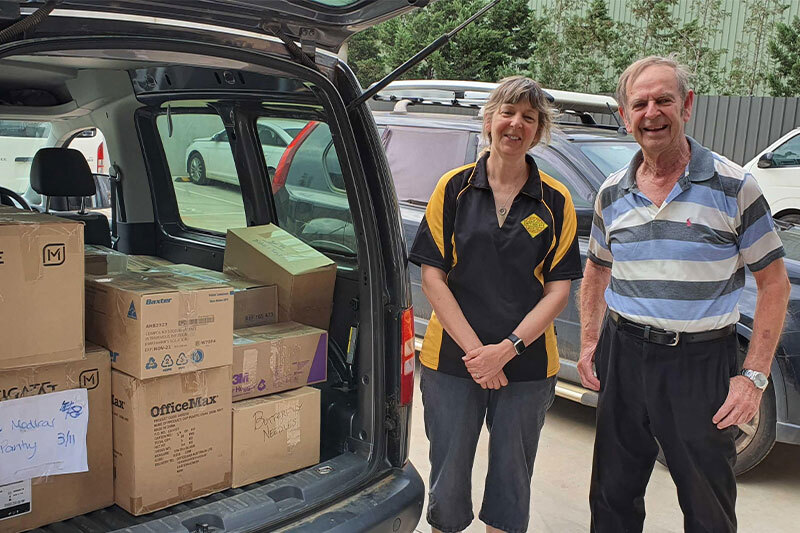
Future plans?
The long-term plan is to really find our feet as an organisation. That’ll involve building our executive board, engaging more volunteers, and ensuring our programmes are sustainable and safe. Once our headquarters in Melbourne is established and we’re collecting from most hospitals in the state, we really want to expand nationally to Sydney or Brisbane, and hopefully emulate organisations like Foodbank Australia.
The Medical Pantry is desperate for more warehouse space and has been turning away medical supplies. If you wish to support Medical Pantry and help them collect and store more supplies, please visit www.medicalpantry.org to donate or email [email protected] if you can help source a warehouse in Melbourne.
Related Articles
Vietnam: The Latest Hotspot For Medical Tourism
AI Healthcare: More Accurate Than Doctors?
Social Distancing: The Ultimate Guide to Definitions, Rules & Etiquette
